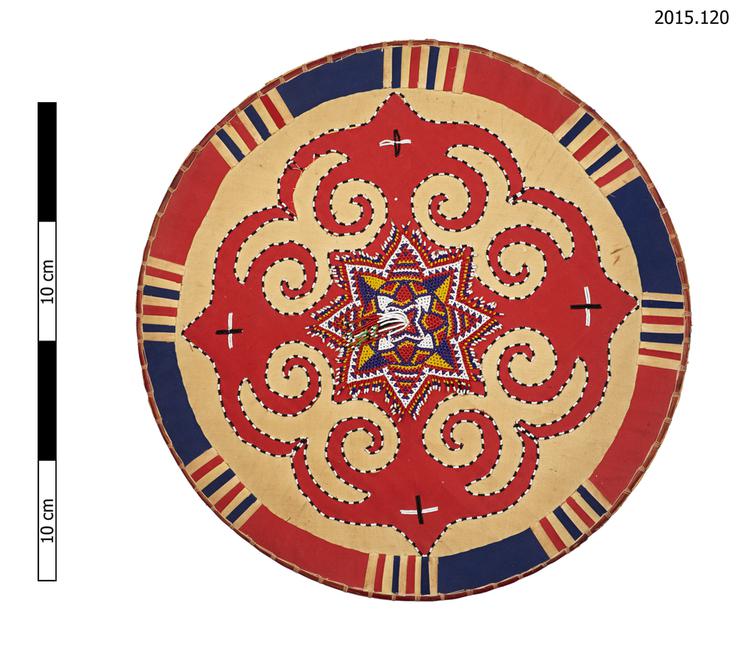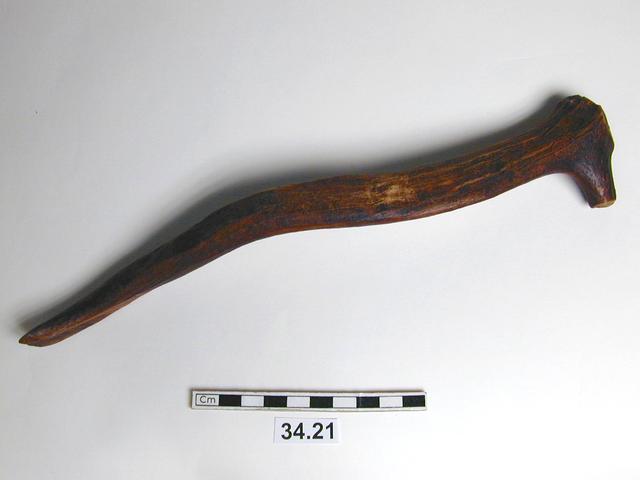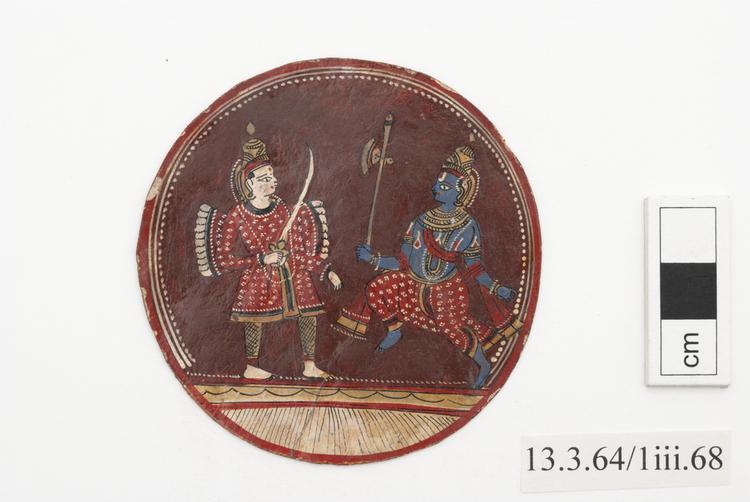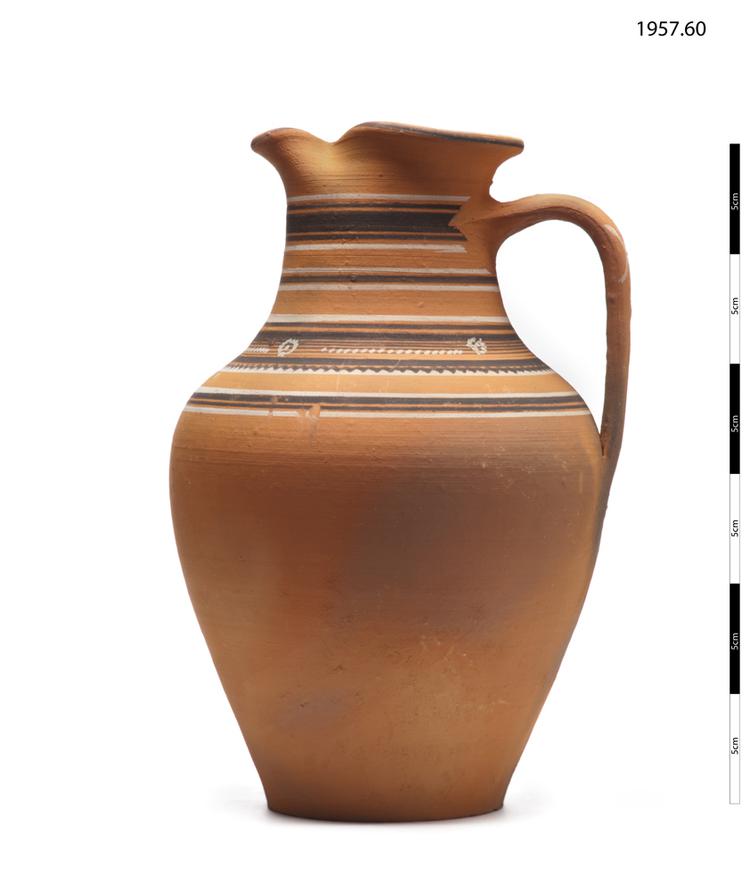Sanchar stick puppet of a tiger. Tigers wears an orange outfit with a red collar and three red sticks used to move the puppet.
This puppet is a ‘hand’ or ‘glove’ puppet. It fits over the puppeteer’s hand with the first finger supporting the head, the middle finger in one arm and the thumb in the other. Sanchar puppets are used to illustrate social issues to an audience of rural villagers and they are also used to educate children in schools. The Sanchar group was founded by a man called Ram Lal. who is from a fourth generation family of puppeteers living in Rajasthan. Ram Lal wanted to create a new and modern form of puppetry that was not based on traditional stories ( see the traditional ‘kathputli’ puppets of Rajasthan).The themes of the sanchar puppet shows are to do with current social issues such as hygiene, family matters and education. The stories do not have a script so the puppeteer and the audience collaborate to develop the themes. Ram Lal says. “There’s a constant debate in the story, and the story evolves based on the decisions of the audience. Even the end is open ended to enable introspection.”
Ram Lal has also added,” For a puppeteer to be effective, he has to be spontaneous. Things that come from the heart reach into the audience’s heart






